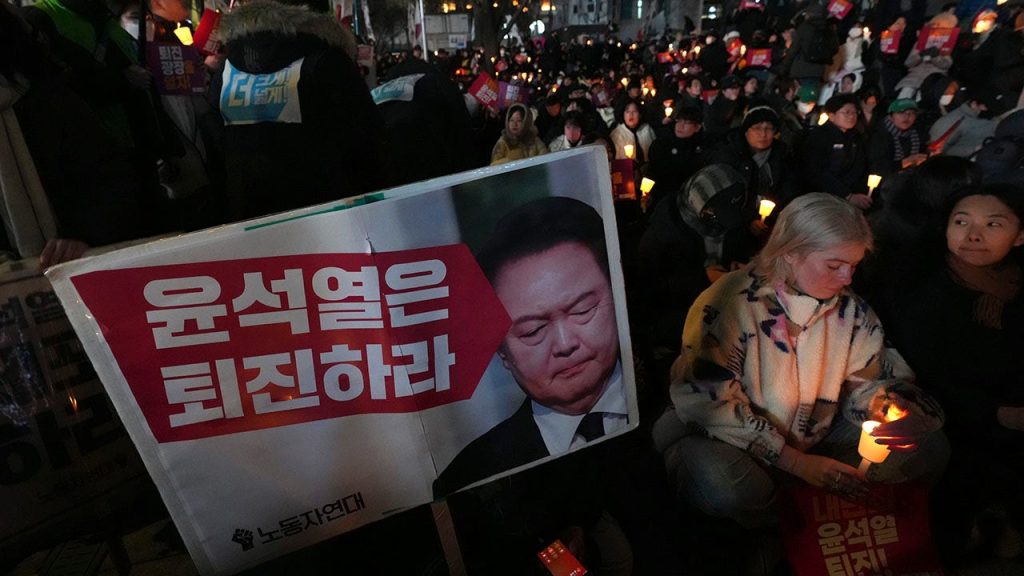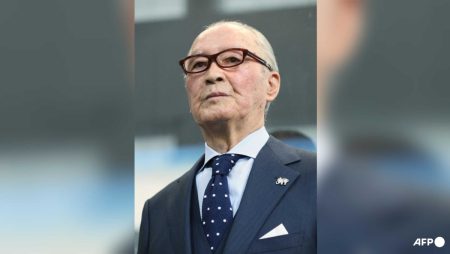South Korean President Yoon Suk Yeol’s recent and abrupt announcement of martial law aimed at targeting “anti-state” elements has ignited a significant controversy, leading to widespread condemnation from opposition lawmakers who view it as a severe overreach of power. In the wake of this decision, opposition parties, spearheaded by the liberal Democratic Party along with five smaller factions, swiftly moved to initiate impeachment proceedings against the president. This effort requires the support of two-thirds of the 300-seat National Assembly as well as a favorable ruling from at least six justices of the nine-member constitutional court. The motion was filed with the intention of a vote potentially taking place as soon as Friday.
Political analysts suggest that Yoon’s declaration was rooted in a desperate attempt to reinforce his authority amidst criticism and unrest from opposition parties. Sung-Yoon Lee, a global fellow at the Wilson Center, characterizes the move as a significant political blunder, or an “own goal,” wherein the president aimed to assert his control but inadvertently deepened his struggles. His short-lived martial law declaration lasted only six hours and was met with immediate backlash, highlighting the unease it elicited among citizens due to historical memories of oppressive military governance. Ultimately, the National Assembly acted swiftly, rejecting the martial law proposal in an overwhelming 190-0 vote.
Yoon’s martial law statement was underscored by vows to eliminate perceived threats from opposition groups, whom he accused of harboring pro-North Korean sentiments. This rhetoric raises alarms regarding potential ramifications for inter-Korean relations, given North Korea’s history of exploiting political crises in South Korea. Lee warns that North Korean leadership may seize upon this turmoil, likely issuing provocative statements and manipulating the situation to divert attention away from the regime’s own behaviors and to amplify hostility towards Yoon.
The implications of Yoon’s potential impeachment could lead to significant changes in South Korea’s political landscape. Should he be removed from office, Prime Minister Han Duck-soo would assume presidential responsibilities. An important factor in this unfolding scenario is the current composition of the constitutional court, which has only six justices due to recent retirements. Since four of these justices are Yoon’s appointees, the path to finding a majority for impeachment becomes more complex and uncertain. Observers are keenly watching how the court will navigate these political dynamics should the situation escalate to impeachment proceedings.
As Yoon faces mounting pressure from opposition parties and the public, his political future hangs in the balance. His actions not only spur domestic controversy but also hold potential ramifications for international relations, particularly with North Korea. The unfolding events pose critical questions about democratic governance in South Korea, showcasing the delicate balance between empowering leaders and ensuring accountability in a nation with proud democratic traditions.
In summary, the martial law declaration by President Yoon Suk Yeol is emblematic of his struggle to maintain authority amid substantial opposition defiance. The swift motion for impeachment indicates a serious challenge to his presidency and emphasizes the fragile state of South Korea’s democratic framework. As the nation grapples with these implications, the potential for North Korean opportunism looms dangerously in the background, while the constitutional court’s forthcoming decisions could ultimately redefine Yoon’s legacy and South Korea’s political trajectory.










